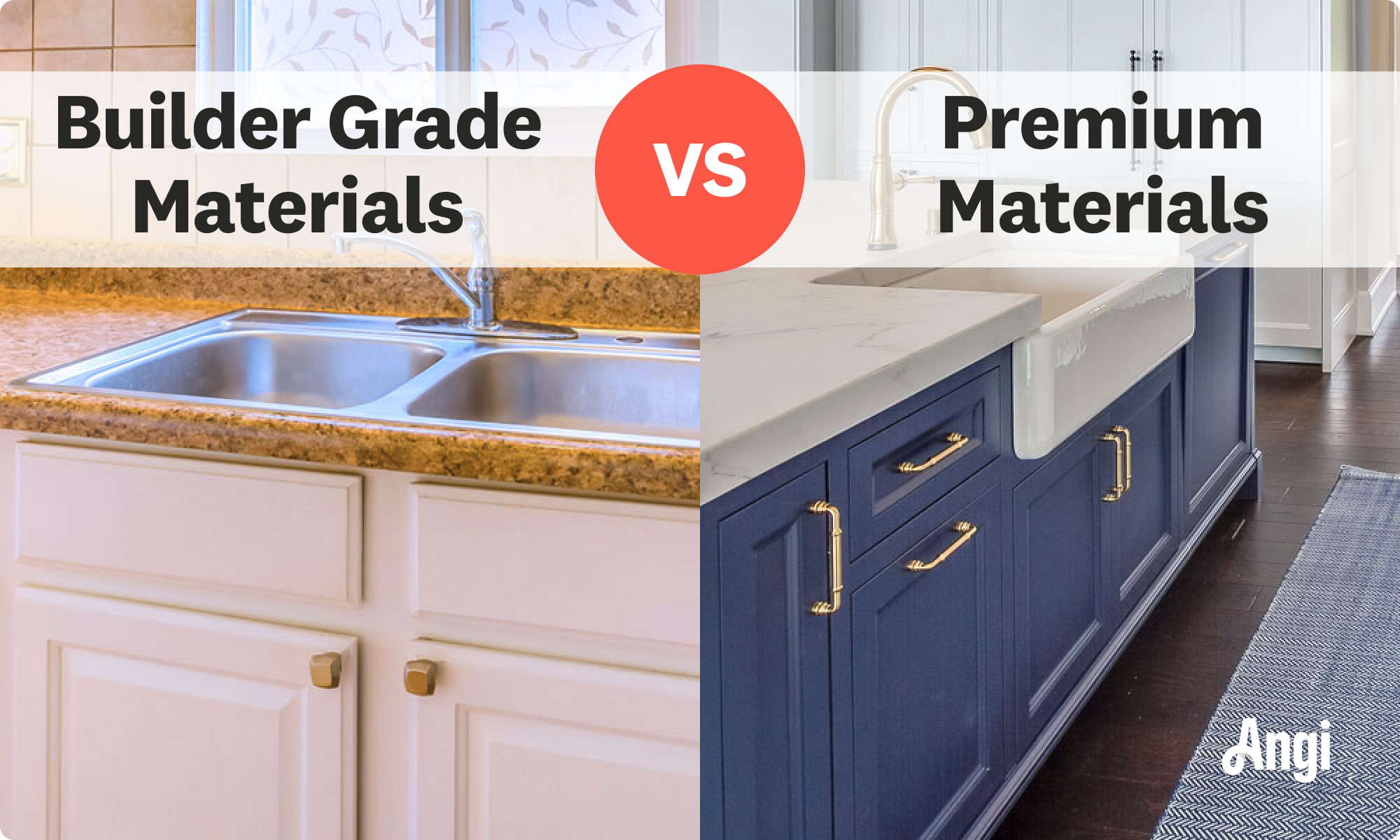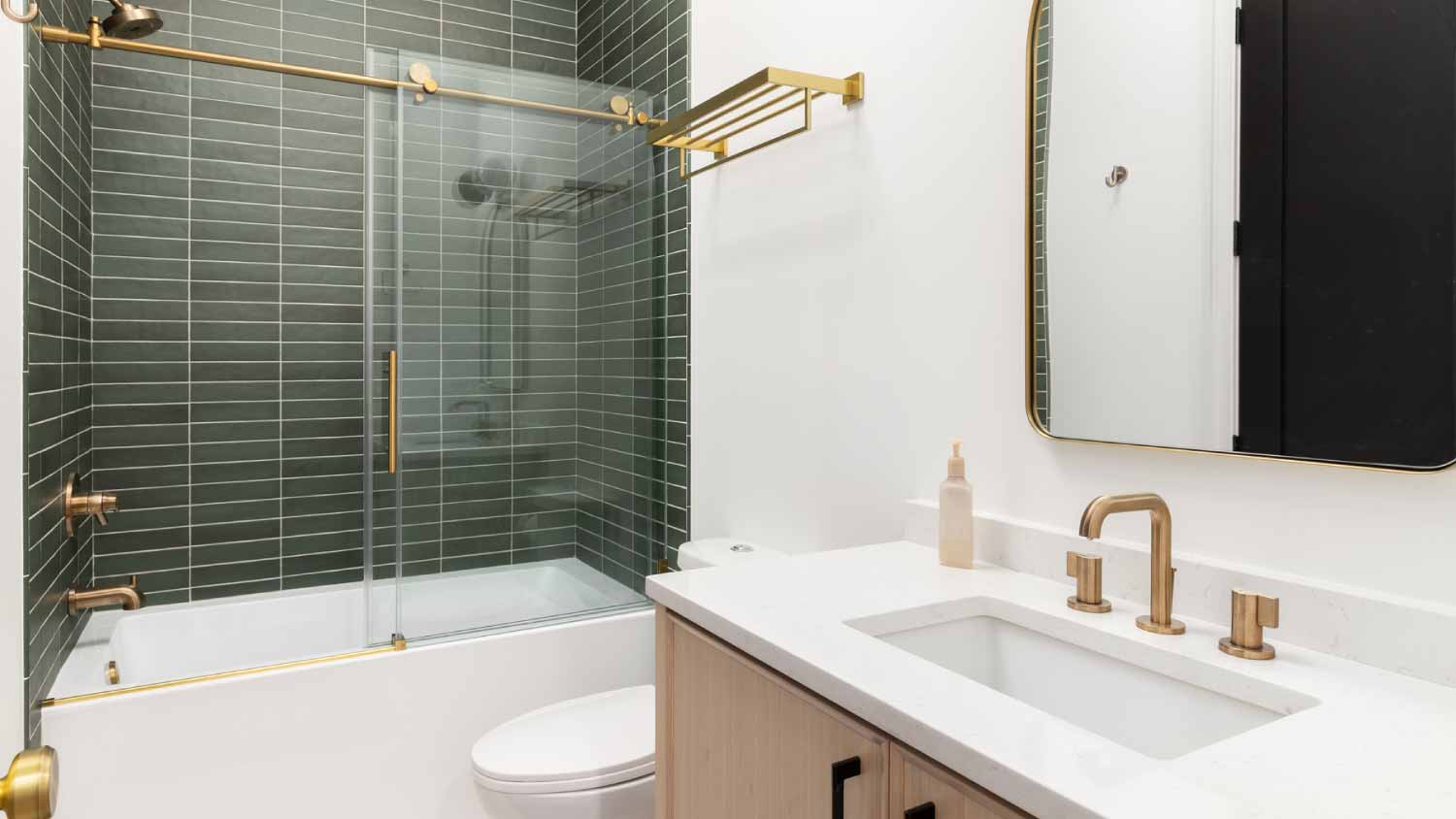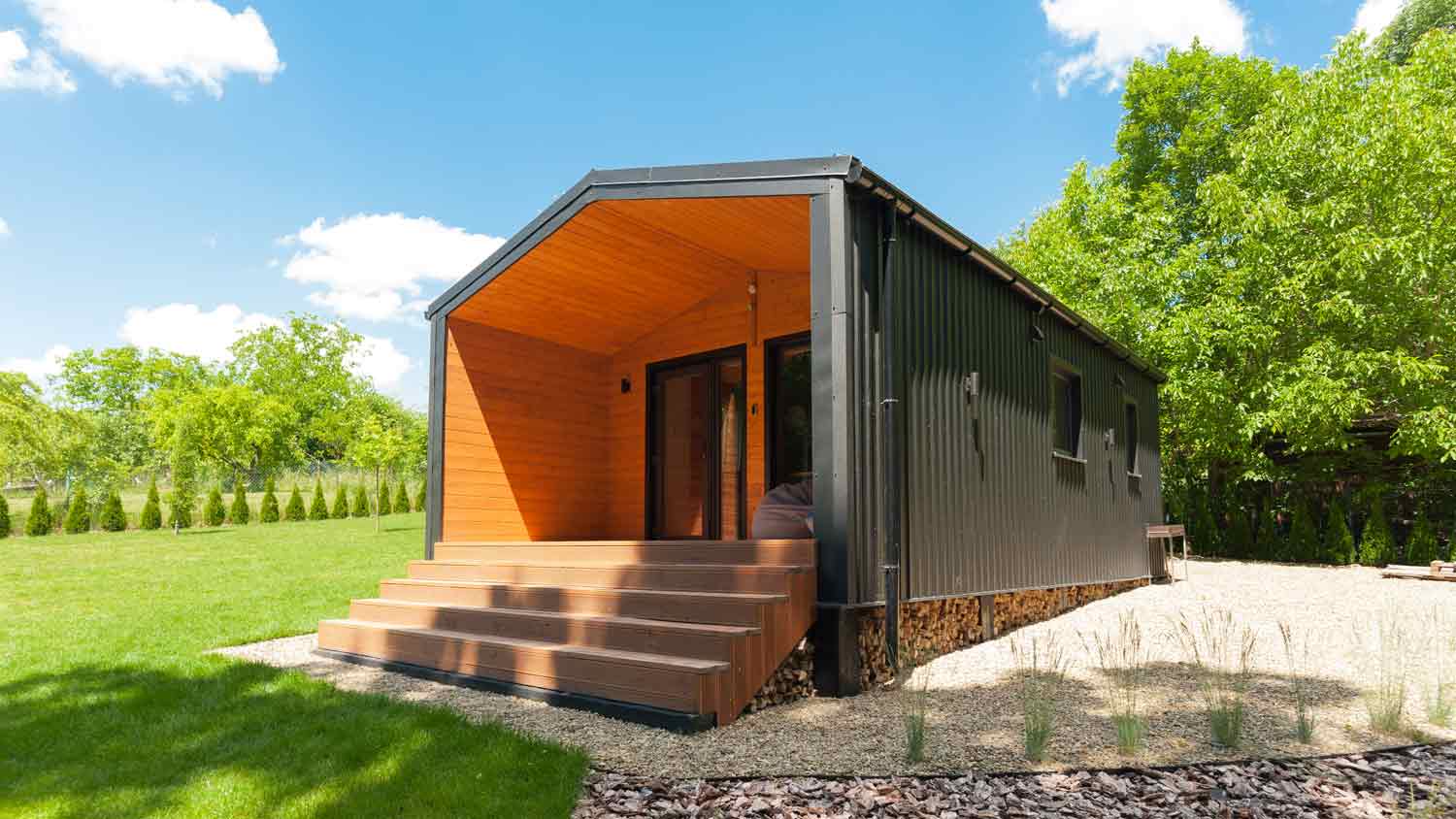What Is Builder Grade? Getting the Right Materials for Your Home
Builder-grade materials are the budget-friendly foundation of any home


Builder-grade materials offer function and broad appeal.
These materials make renovations and homes more affordable.
Unlike premium materials, builder-grade materials focus on neutrality.
Many homeowners considering a few home upgrades will likely notice the term "builder grade" when shopping at their local home improvement stores. But what is builder grade exactly? It refers to standard materials contractors use to keep costs down while ensuring basic quality requirements. Let’s get into the nitty-gritty.
What Are Builder-Grade Materials and How Are They Used?
Builder-grade materials and finishes are practical, functional, and affordable. They include everything from flooring to light fixtures, cabinets to countertops, and sinks to toilets. These materials are ideal for all homes, particularly starter homes and rental properties where cost savings are top priorities. Many homeowners decide to replace builder-grade materials with higher-end finishes when it’s time to renovate.
Builder Grade Materials vs. Premium Materials

The most significant differences are as follows: builder-grade materials meet basic functional requirements, while premium materials offer unique appeal and longevity.
Builder-grade materials focus on neutrality and simplicity, so they have broad appeal. Conversely, premium materials offer various finishes, designs, and textures that personalize and elevate a home’s overall aesthetic depending on the homeowner’s preferences.
Also, while builder-grade finishes save money up front, premium materials pack more long-term value. Higher-quality items reduce long-term maintenance costs and enhance a home’s resale appeal. Ultimately, the choice between builder-grade and premium materials depends on your budget, priorities, and how long you plan to stay in the home. If you plan to build a new home, a local custom home builder can assist you with these decisions.
Pros of Builder-Grade Materials

You can't beat how these materials combine affordability and practicality. They provide essential functions without all the frills that come with more expensive materials. Builder-grade materials are great solutions for many homeowners seeking to make budget-minded home improvements. They also help decrease housing costs in new construction, passing the savings to home buyers.
Perhaps best of all, these materials are widely available. That means there are typically no long waits for items to ship or pick up, unlike specialty items that can take weeks, if not months.
Cons of Builder-Grade Materials
These basic materials are mass-produced using cheaper materials to boost cost savings. That means they may not withstand years of wear and tear like higher-end options. For example, some builder-grade kitchen cabinets are particle board and not solid wood, making them more prone to chipping and warping over time.
Another point to consider is the lack of variety in design and customization. Builder-grade materials are made for universal appeal, so they lack the uniqueness many homeowners want in their homes.
On the flip side, uniqueness could be a problem when it is time to sell. For example, not everyone loves colorful designer bathroom tiles. However, while builder-grade materials are not unique, they don't have the higher-quality appeal that attracts home buyers.





- How to Hire a Builder for Your Dream Home
- Grades of Hardwood Flooring and What You Need to Know
- 10 Questions to Ask a Pool Builder Before Hiring
- 16 Questions to Ask a Home Builder Before Hiring
- 11 Big Mistakes to Avoid When Building a New Home
- How to Deal With Home Building Delays
- Everything to Know About Slab-On-Grade-Foundations
- What to Expect During a New Construction Home Inspection and a Builder’s Walk-Through
- 7 Tips for Building a House and Ensuring a Successful Build
- 8 Tips to Save Money When Building a House










